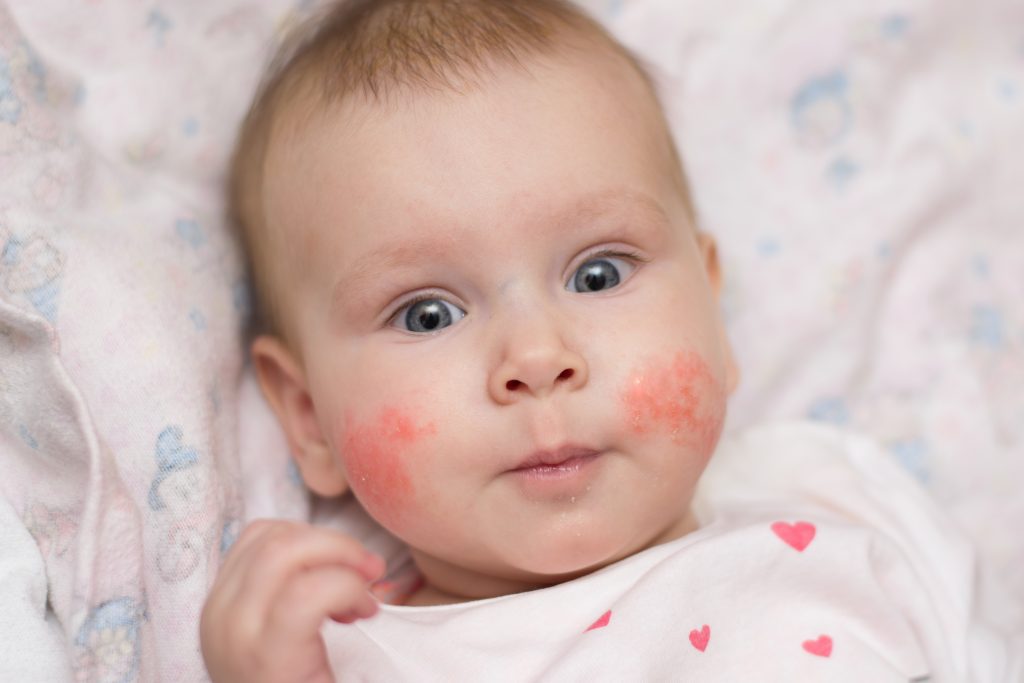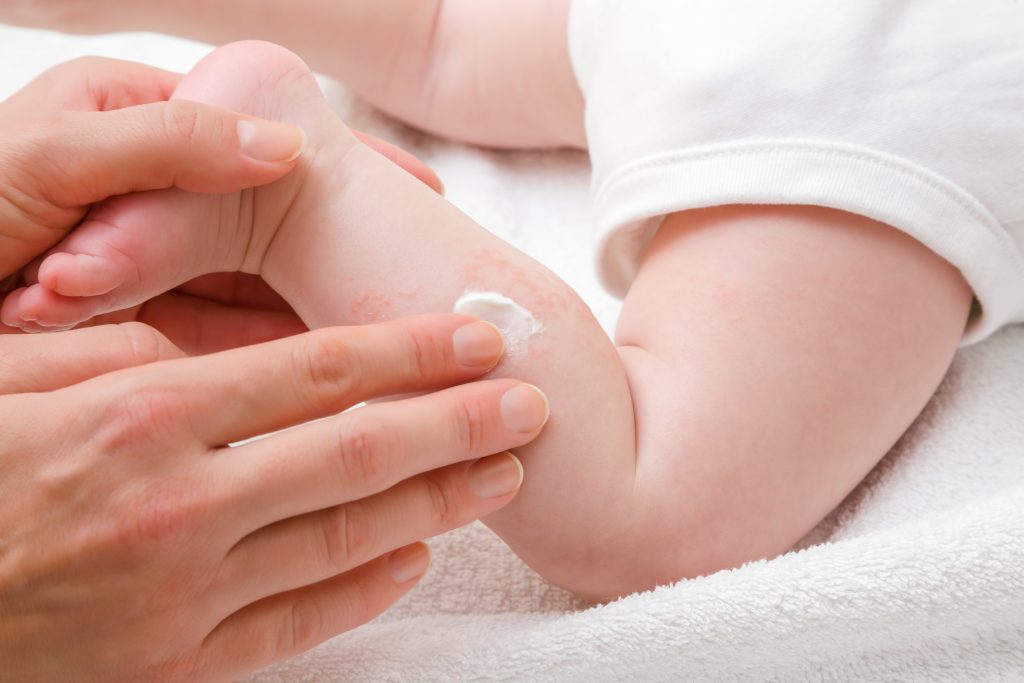Babies And Eczema
Eczema, a skin condition, can be caused by genetics, allergies, or irritants like soaps and fabrics. It also affects the entire body. Eczema symptoms typically arise in young children between the ages of 0-18 months old but may also affect adults with varying degrees of severity.

Why Do Babies Develop Eczema?
Eczema in children and infants is a common condition. There are many causes of eczema in babies, some more serious than others. Eczema commonly appears on the face or scalp of newborns because they tend to be very sensitive when it comes to scratches and nicks. This can cause rashes on the area that was touched.
If a baby develops eczema in the diaper area, it is more likely due to an allergic reaction. Babies are exposed to many different types of food and products when they start eating solids and still use diapers, so this can also be attributed as one cause for eczema in babies.
Eczema typically begins during infancy, but we must inform you, or remind you, that children of all ages can get eczema. Sometimes, kids will outgrow their skin condition, but it may continue into adulthood if left untreated for too long.
How To Protect The Babies From Eczema?

Parents can help prevent their children from experiencing eczema symptoms by following some simple steps.
- Mothers should avoid consuming any food that causes allergies in the baby. If you suspect a particular food item could be causing an allergic reaction, then consult your pediatrician before introducing it to your child’s diet.
- Parents can introduce their babies to foods containing omega-three fatty acids as they have been found to reduce eczema flare-ups and reduce the risk of developing asthma.
- Parents should try to avoid using chemicals or fabrics that can irritate their baby’s skin, like fabric softeners, etc.
- Mothers should also make sure they change clothes after playing outside in order to prevent dirt from irritating their babies’ sensitive skin.
